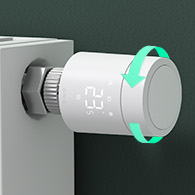I haven't read up that much on it I only spotted that yesterday, I think if there is any new legislation it will be next year.
63. Secondly, we propose to allow for third-party certification of work that has been carried out by someone who is not a member of a Competent Person Scheme.
We will test the detail of how this works at consultation. We believe that there are two possible ways that could be made available under these proposals – providing the flexibility for individuals to decide which route is the more suitable/cost-effective for them.
64. The first approach would be to permit suitably trained and qualified members of Competent Person Schemes to certify the work of others who are not registered electricians, thereby by-passing the building control body entirely.
Initial engagement with external partners suggests that scheme operators believe that, in addition to a final inspection, this option should include supervision and inspection while the job is being undertaken. On that basis, we estimate that the cost for this type of third-party certification would be approximately £150.
65. An alternative approach would be to permit any qualified electrician to inspect work by unregistered installers, and to issue a “condition report” following only a final inspection of the completed work (that is by-passing an intermediate inspection of work-in-progress), but which would be subject to final formal sign-off by the building control body.
This approach would only deliver potential savings if the fees charged by the building control body properly reflected the reduced cost to them of the notification (by generally accepting the condition report as demonstrating compliance with the regulations).
DCLG envisages, therefore, that it would need to be underpinned by changes to the local authority building control charges regulations that came fully into effect in October 2010, and working with LABC (Local Authority Building Control) on a model charging scheme to encourage local authority building control bodies to charge fees that properly reflect the work involved with their consideration.
We estimate that overall charges are likely to be similar to those set out above – £80 for production of a “condition report” by a qualified electrician and a reduced building control fee of £70 (including the £10 cost in time of notification by the installer).
66. This means that for DIYers the average saving per job through introducing third party certification is £91 (the average building control fee and notification of £241 minus the cost of third-party certification of £150). 4% of the 950,000 jobs carried out by DIYers are notifiable, so the potential saving is £3.46m per year or £29.78m over 10 years. This is a saving to DIYers rather than business.


